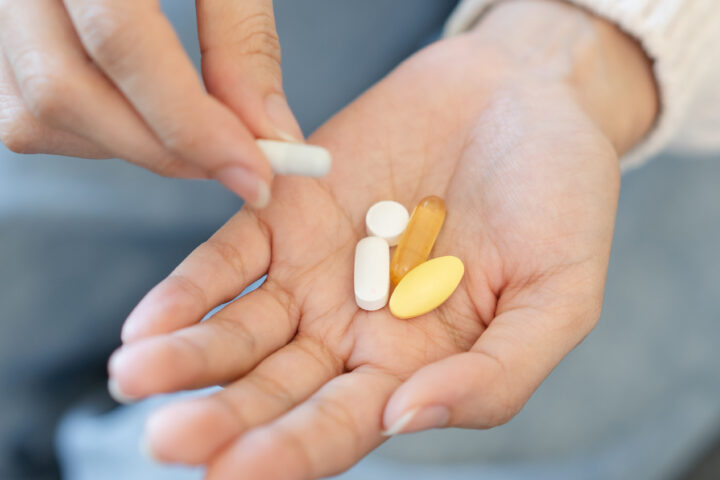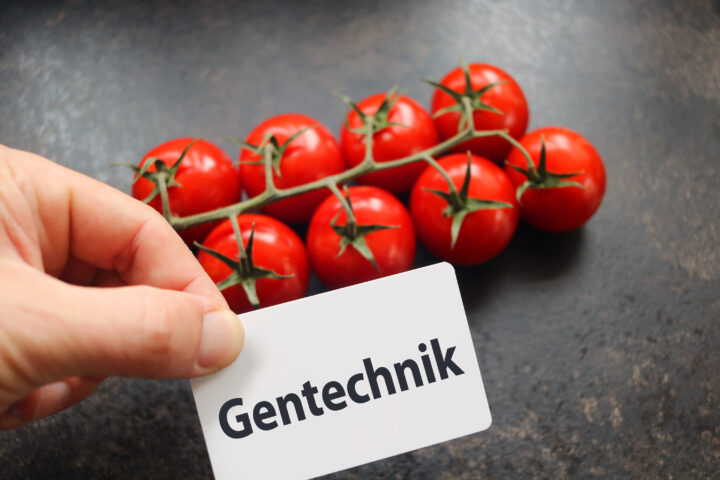
Europe is suffering from severe drought
This summer, large parts of Europe have received less rainfall than at almost any other time in their history. A phenomenon we are set to see occur ever more frequently in future. The trend in Switzerland is also pointing towards more drought. This poses an enormous challenge for agriculture. With a drought early warning system, farmers should, in future, have better opportunities to plan for these eventualities.
Tuesday, July 26, 2022
Europe is getting increasingly drier. As the Frankfurter Allgemeine Zeitung writes, soil moisture is below average in large parts of the continent. In northern Italy, some parts of the Po river have never run so low. Farmers are abandoning fields and struggles have broken between regions over water. A third of crops are at risk. With France also suffering from the heat, more and more farmers there are considering switching to millet or soy – it is almost too dry for barley. In Spain, record temperatures of 40 degrees Celsius were recorded in May, while in the UK, this summer saw temperatures break into the 40s for the very first time.
Switzerland is getting increasingly drier
Switzerland has also been affected by this lasting drought. As the Tages-Anzeiger reports, a study conducted by ETH Zurich and MeteoSwiss found that Swiss summers have been getting considerably drier over the last 40 years. According to the study’s authors, the lack of rainfall alone is not solely to blame for the dry fields. Evaporation also plays a major part. Temperatures in Switzerland have risen by more than two degrees over the last 40 years, twice the global average. This means more water in the soil is evaporating. The more water that evaporates, and that is not offset by rainfall, the drier the ground becomes. At the end of July 2022, the soil moisture levels were already at the lowest levels seen in record years 2018 and 2015.
Less rainfall, more evaporation
According to the study’s authors, rainfall in the agriculturally important Swiss Plateau has fallen by 11% since the start of the 1980s. Over the same period, evaporation has risen by 11%. Less rainfall and increased evaporation are therefore contributing in equal measure to parched soils. This trend is also reflected in the water balance (rainfall minus evaporation): while the 1980s saw a water surplus of 50 liters per square meter, today, we have a deficit of 100 liters per square meter. The moisture content in the upper levels of the soil has fallen by 5%.
Arable and livestock farming affected
Soil drought poses an enormous challenge for agriculture. Dry soils threaten farmers’ crops. And livestock farming does not escape either. In many places, pastures and fields have dried up, and farmers can no longer leave their animals outside all day during heatwaves. This means they have to tap into their winter food reserves. As SRF reports, several cantons have introduced emergency measures for livestock. In Fribourg, Neuchâtel and Jura, for example, animals are now having to graze on pastures that are not usually approved for use at this time of year.
An early warning system for agriculture
To allow farmers to better prepare for dry periods in future, the Swiss Federal Council has commissioned the development of an early detection and warning system for drought. The aim of this new soil moisture measurement network is to warn farmers, as well as other industries, of drought periods a few weeks before they occur. This should enable those affected to take counter measures, for example crop irrigation, in good time. The early warning system will be developed by the Swiss Federal Office for the Environment (Bafu), MeteoSwiss and the Swiss Federal Office of Topography (Swisstopo) and will be available to the public from 2025.
Sources
Related articles

Residue is not the same as residue
Painkillers like Voltaren are a blessing for us – yet in our rivers they can harm fish. If these were crop protection products, calls for bans would be immediate. It becomes clear that we are applying double standards.

ARTE documentary: Genetic engineering in organic farming?
The ARTE documentary “Genetic engineering in organic farming?” examines key controversial questions of modern agriculture: Is the general exclusion of new breeding technologies still up to date? Can the resistance of organic farming be justified scientifically?

The Great Suffering of Farmers
Fire blight, Japanese beetles, or grapevine yellows – farmers in Valais, too, are increasingly feeling helpless in the face of the threats posed by nature. More and more often, they lack the means to effectively protect their crops. This makes it all the more important for the Federal Council to place a pragmatic balancing of interests at the forefront when setting threshold values.

'Tomatoes on your eyes'
The submitted “Food Protection Initiative” calls for “GMO-free food.” Leaving aside this illusory demand, its adoption would mean more bureaucracy, more trade barriers, and less innovation. The Swiss Farmers’ Union describes the proposal as “unnecessary” and warns of a setback to the goal of achieving an even more sustainable agriculture.

